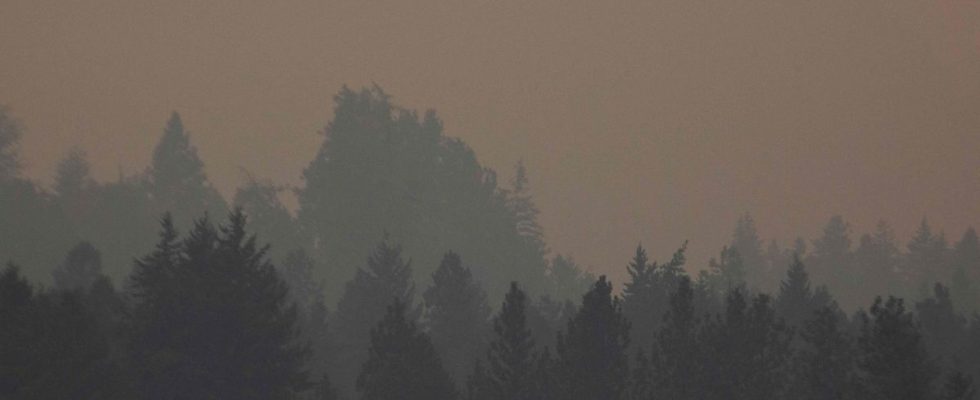A (little) good news as the earth burns. The lull continued Tuesday on the fire front in western Canada thanks to cooler weather conditions, even allowing some evacuees to return home, even if records for the area burned continue to be broken.
Across the country, the bar of 15 million hectares burned has been crossed, more than the area of Greece and more than double the last record for Canada, dating from 1989. But in the West, the residents of the Okanagan Valley, where several towns were threatened, are breathing a little better. Weather over the past few days has helped firefighters slow the progress of the fires, which number in the hundreds in British Columbia alone. This province still counts some 27,000 displaced people to this day.
More than a thousand active fires across the country
“It’s a step in the right direction,” the West Kelowna fire chief said on Tuesday, speaking of a “thin glimmer of hope.” The day before, he had announced that about 50 buildings had been destroyed in this city of about 30,000 inhabitants. A material balance sheet which is not yet final, he insisted. “In some areas, the destruction is total. There is nothing left,” he explained, warning residents that the return will be “very difficult”.
In the Far North, it is still too early to talk about the return of the evacuees from Yellowknife, but Mayor Rebecca Alty says she hopes for “favorable weather to allow the fire to be attacked”. The area has received some rain in recent days, which has given firefighters some respite, and precipitation is expected again on Tuesday.
Canada faces a record breaking wildfire season this year. More than a thousand fires are active in the country, affected from east to west, and more than 650 are uncontrolled.

